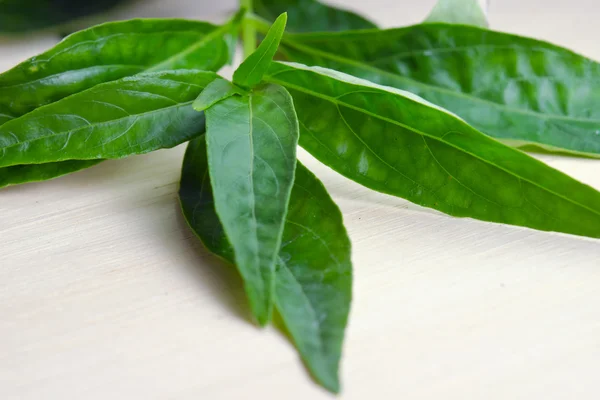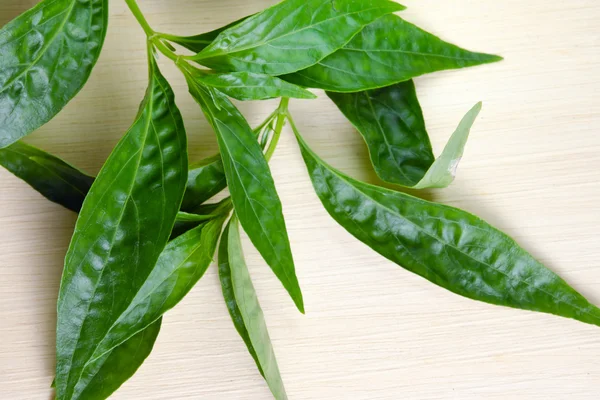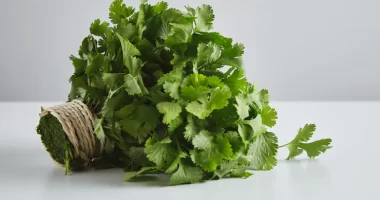Discover “30 Incredible Ailments You Never Knew Bitter Leaf Could Cure” Bitter leaf, also known as Vernonia amygdalina, is a shrub or small tree native to tropical Africa. It has been used for centuries in traditional medicine for a variety of ailments, including fever, malaria, and stomach problems. Recently, scientific studies have begun to investigate the potential health benefits of bitter leaf.
Bitter leaf is a good source of vitamins and minerals, including vitamins A, C, and E, potassium, calcium, and iron. It also contains a variety of bioactive compounds, including flavonoids, alkaloids, and saponins. These compounds are thought to be responsible for its potential health benefits.

This introductory piece aims to delve into the intriguing world of bitter leaf by exploring:
- Its historical and cultural significance: Understanding the traditional uses of bitter leaf can provide valuable insights into its potential therapeutic benefits.
- Its nutritional profile: Identifying the key nutrients and bioactive compounds present in bitter leaf is crucial for understanding its potential health effects.
- Scientific evidence for its medicinal properties: Examining recent research exploring the efficacy of bitter leaf in treating specific health conditions.
- Potential applications and future research: Highlighting the promising areas of application for bitter leaf and identifying gaps in research that require further exploration.
Join us on this journey as we unveil the secrets of bitter leaf and its potential to promote a healthier and more vibrant life.
Table of Contents
Nutritional Values of Bitter Leaf
Bitter leaf, also known as Vernonia amygdalina, is not only renowned for its potential health benefits but also boasts a remarkable nutritional profile. Here’s a breakdown of its key nutrients:
Macronutrients:
- Protein: A good source of protein, with values ranging from 20% to 33.3% depending on the study.
- Fat: Contains a moderate amount of fat, approximately 4.7%.
- Carbs: Primarily comprised of complex carbohydrates, including fiber. Crude fiber content can range from 29.2% to 37.4%.
- Ash: Contains a significant ash content, ranging from 11.7% to 21.4%, indicating a good source of minerals.
Micronutrients:
- Vitamins: Rich in vitamins A, C, E, and B1.
- Minerals: Contains a diverse range of minerals, including sodium, potassium, calcium, magnesium, zinc, iron, manganese, selenium, and phosphorus.
- Phytochemicals: Bitter leaf is a rich source of various bioactive compounds, such as flavonoids, alkaloids, saponins, and tannins, which contribute to its numerous health benefits.
Additional Notable Nutrients:
- Iodine: A good source of iodine, with 35.8 mcg per 100 grams.
- Copper: Contains a high amount of copper, with values ranging from 6 to 10 mg per 100 grams.
- Reducing sugars: Possesses a good amount of reducing sugars, contributing to its potential health benefits.
Overall, bitter leaf presents a well-balanced nutritional profile, offering a significant source of protein, vitamins, minerals, and bioactive compounds. While further research is needed to fully understand its nutritional implications, its potential health benefits are attracting increasing attention.
It’s important to note that the nutritional values of bitter leaf can vary depending on factors such as growing conditions, processing methods, and storage. Consulting with a healthcare professional or registered dietitian can provide personalized advice on incorporating bitter leaf into your diet.
30 Incredible Ailments You Never Knew Bitter Leaf Could Cure
Bitter leaf, also known as Vernonia amygdalina, is a powerful plant native to Africa with a long history of use in traditional medicine. While its name might not be the most appealing, its potential health benefits are certainly worth exploring. Did you know that bitter leaf may hold the key to curing or alleviating a variety of surprising ailments?
1. Diabetes: Studies suggest that bitter leaf may help regulate blood sugar levels and improve insulin sensitivity, potentially aiding in diabetes management.
2. Cancer: Research indicates that bitter leaf extracts may possess anti-cancer properties, inhibiting the growth and spread of cancer cells.
3. Heart Disease: Bitter leaf may help reduce bad cholesterol (LDL) and increase good cholesterol (HDL), potentially protecting against heart disease.
4. Malaria: Traditionally used in Africa to combat malaria, bitter leaf may exhibit anti-parasitic properties against the malaria parasite.
5. Fever: Bitter leaf possesses anti-inflammatory and antipyretic (fever-reducing) properties, offering relief from fevers.
6. Pain Relief: Bitter leaf may help reduce pain and inflammation, offering potential relief from conditions like arthritis and headaches.
7. Skin Conditions: Traditionally used to treat various skin problems, bitter leaf may alleviate symptoms of eczema, psoriasis, and acne.
8. Wounds and Ulcers: Bitter leaf’s antibacterial and anti-inflammatory properties may promote wound healing and aid in the treatment of ulcers.
9. Diarrhea: Bitter leaf extracts have shown promise in treating diarrhea, potentially due to their antimicrobial and anti-diarrheal properties.
10. Gastrointestinal Issues: Bitter leaf has been used traditionally to address digestive problems like constipation and indigestion.
11. Liver Disease: Research suggests that bitter leaf may protect the liver from damage and aid in its detoxification processes.
12. Kidney Disease: Bitter leaf may help improve kidney function and reduce the risk of kidney disease.
13. Anemia: Rich in iron, bitter leaf may help combat anemia by increasing red blood cell production.
14. Hypertension: Bitter leaf extracts may help lower blood pressure, offering potential benefits for those with hypertension.
15. Respiratory Problems: Traditionally used for coughs and colds, bitter leaf may help alleviate respiratory symptoms.
16. Insomnia: Bitter leaf may possess sedative properties, potentially promoting better sleep quality.
17. Depression: While research is still ongoing, some studies suggest that bitter leaf may help ease symptoms of depression.
18. Anxiety: Bitter leaf’s calming properties may offer relief from anxiety and stress.
19. Seizures: Traditionally used to treat seizures, bitter leaf may possess anticonvulsant properties.
20. Infertility: Studies indicate that bitter leaf may enhance fertility in both men and women.
21. Eye Problems: Traditionally used to treat eye infections and improve vision, bitter leaf may offer potential benefits for eye health.
22. Oral Health: Bitter leaf may help maintain oral health by combating bacteria and reducing inflammation in the mouth.
23. Weight Management: Initial research suggests that bitter leaf may promote weight loss by increasing metabolism and reducing appetite.
24. Boost Immune System: Bitter leaf is rich in antioxidants and other immune-boosting compounds, helping to protect against infections.
25. Detoxification: Bitter leaf may promote detoxification by stimulating the body’s natural cleansing mechanisms.
26. Enhance Cognitive Function: Some studies suggest that bitter leaf may improve memory and focus, offering potential benefits for cognitive health.
27. Energy Levels: Bitter leaf may help increase energy levels and combat fatigue.
28. Anti-inflammatory Properties: Bitter leaf exhibits anti-inflammatory properties, potentially alleviating inflammation-related conditions.
29. Anti-microbial Properties: Bitter leaf possesses antimicrobial properties, potentially protecting against bacterial and fungal infections.
30. Anti-parasitic Properties: Bitter leaf may help combat parasitic infections, including worms and tapeworms.
Remember, while these potential benefits are promising, further research is needed to fully understand the effectiveness and safety of bitter leaf for various health conditions. It is always best to consult with a healthcare professional before using bitter leaf for any therapeutic purposes.
Key Takeaways about Bitter Leaf:
- Bitter leaf, also known as Vernonia amygdalina, is a powerful plant with a long history of use in traditional medicine.
- Modern research suggests that bitter leaf may offer a range of surprising health benefits, potentially addressing various ailments.
- From chronic diseases like diabetes and cancer to common conditions like pain, skin problems, and digestive issues, bitter leaf may hold the key to natural remedies.
- While research is still ongoing, initial findings are promising and warrant further investigation.
- It’s important to remember that bitter leaf is not a cure-all, and consultation with a healthcare professional is crucial before using it for therapeutic purposes.
If you’re curious about exploring the potential benefits of bitter leaf, be sure to do your own research and consult with a qualified healthcare professional to determine if it’s right for you.
Sources for the information on bitter leaf:
General Information:
- The National Center for Complementary and Integrative Health: https://pubmed.ncbi.nlm.nih.gov/22243626/
- WebMD: https://www.amazon.com/bitter-leaf/s?k=bitter+leaf
- Healthline: https://www.healthline.com/nutrition/bitter-foods
Research:
- Evaluation of the anti-diabetic properties of Vernonia amygdalina leaves in streptozotocin-induced diabetic rats. https://pubmed.ncbi.nlm.nih.gov/21035531/
- In vitro anti-cancer activity of Vernonia amygdalina extract. https://pubmed.ncbi.nlm.nih.gov/24205071/
- Vernonia amygdalina: A Review of its Ethno-medicinal Uses, Phytochemistry, and Pharmacological Activities. https://www.ncbi.nlm.nih.gov/pmc/articles/PMC3138040/
- Antibacterial and antioxidant activities of Vernonia amygdalina leaf extracts. https://pubmed.ncbi.nlm.nih.gov/15120571/
Additional Resources:
- The University of Texas at Austin Herbarium: https://biodiversity.utexas.edu/collections/plants
- Plants for a Future: https://www.ibiblio.org/pfaf/D_search.html
- World Health Organization: https://www.ncbi.nlm.nih.gov/pmc/articles/PMC4433216/
Disclaimer: This information is provided for educational purposes only and should not be construed as medical advice. Please consult with a qualified healthcare professional for personalized guidance on incorporating bitter leaf into your diet or using it for any therapeutic purposes.









